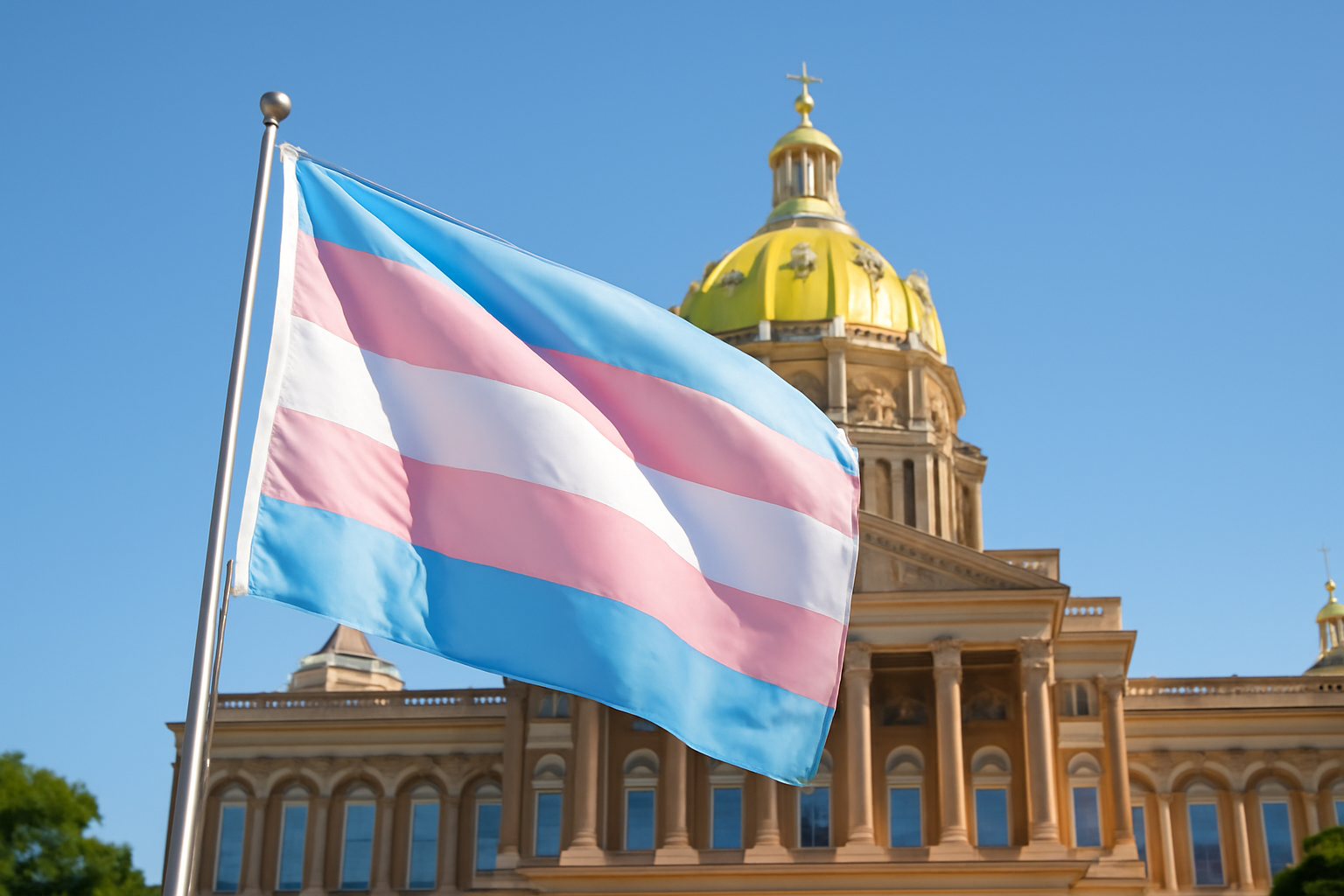
In a significant legislative development, lawmakers in Iowa have passed a bill that alters existing civil rights protections for transgender individuals. The bill will now be sent to the governor's desk for approval. This decision has sparked a heated debate among state residents, advocacy groups, and legal experts about the implications for the transgender community and the broader civil rights landscape.
The Legislative Journey
The bill, which was introduced earlier this year, proposes changes to the current legal framework that safeguards transgender individuals from discrimination in various aspects of life, including housing, employment, and public accommodations. Proponents of the bill argue that these changes are necessary to address concerns about fairness and consistency in the application of laws.
During the legislative process, the bill underwent several amendments and was subject to rigorous debate in both the Iowa House of Representatives and the Senate. Ultimately, it garnered enough support to pass in both chambers, despite vocal opposition from several lawmakers who believe the bill undermines essential protections for transgender individuals.
Reactions from the Community
The passage of this bill has elicited strong reactions from various stakeholders. Advocacy groups focused on LGBTQ+ rights have condemned the bill, arguing that it represents a step backward for Iowa, a state that has historically been seen as a leader in promoting equality and inclusivity.
"This legislation is deeply troubling and signals a regression in the progress we have made toward ensuring equal rights for all Iowans," said a spokesperson for a prominent LGBTQ+ advocacy organization. "Transgender individuals deserve the same protections and rights as everyone else, and this bill directly threatens those ideals."
On the other hand, supporters of the bill maintain that it is a necessary measure to ensure that laws are applied uniformly and fairly. They argue that the current legal protections for transgender individuals have led to situations where certain groups feel disadvantaged or marginalized.
Legal and Social Implications
Experts are divided on the potential legal and social implications of the bill, should it be signed into law by the governor. Some legal analysts suggest that the bill could face challenges in court, especially if it is perceived as infringing upon the constitutional rights of transgender individuals.
Socially, the bill's passage may have far-reaching effects on the perception and treatment of transgender individuals in Iowa. Many fear that it could lead to increased discrimination and stigma, making it more challenging for transgender people to live openly and authentically.
"If this bill becomes law, it sets a dangerous precedent for other states considering similar legislation," said a legal expert specializing in civil rights. "It could embolden efforts to roll back protections not just for transgender individuals, but for other marginalized groups as well."
Next Steps
As the bill awaits the governor's decision, advocacy groups are mobilizing to encourage a veto. They have launched campaigns to raise awareness about the potential consequences of the bill and to rally public opinion in favor of preserving existing protections.
"We urge the governor to consider the impact this bill will have on thousands of transgender Iowans and to reject this harmful piece of legislation," stated an open letter from several civil rights organizations. "Now is the time to stand up for equality and justice for all."
The governor's decision is expected in the coming weeks, and it will be closely watched by both supporters and opponents of the bill. Whatever the outcome, the debate surrounding this legislation has highlighted the ongoing struggle for transgender rights and the broader fight for equality.
As the situation unfolds, Iowa remains a focal point in the national conversation about LGBTQ+ rights and the role of legislation in shaping social norms and protections.
Related Posts
"Wicked": Unveiling Fiyero's Destiny - Hidden Clues You May Have Overlooked
Have you ever been swept away by a story that leaves you unraveling clues long after it ends? That's exactly what "Wicked" does with its enchanting narrative, unforgettable songs, and complex characters. Among them, Fiyero stands out as a charming prince whose surprising metamorphosis by curtain fall makes us wonder: were there hints about his fate scattered throughout? Let's dig deep and see if " [...]
Triumphant Trans Woman Wins Legal Battle and Inspires Others to Stand Up for Their Rights
Breaking new ground: a landmark victory in transgender rights After battling in courtrooms and enduring endless challenges, Diana Portillo, a transgender woman, has secured a monumental victory in her decade-long fight against workplace discrimination. The result? Nearly $1 million awarded in a historic settlement. But this isn't just a win on paper—it represents a powerful precedent in combati [...]
Pride Month in Latin America: Protests and Demands for Equality
**Celebrating Pride and advocating LGBTQ+ rights in Latin America** Pride Month in Latin America was a lively mix where celebration met activism. Communities united, not just throwing a party but making a stand—demanding equality and pushing governments toward better protection and rights recognition. Throughout Latin America, pride events erupted in marches and cultural displays, each with a c [...]